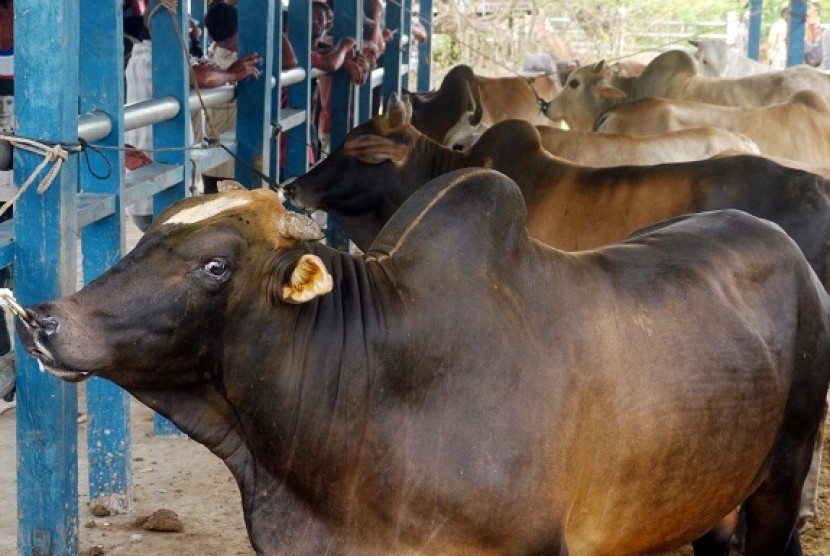A hadith (the Prophet's collection of traditions containing sayings of the prophet Muhammad PBUH -Ed) narrated by Ibnu Majah and at-Tirmidzi contains the advantage of "qurban" or sacrificing livestock in Eid al Adha which falls on October 26 this year. The merit of qurban is that every part of livestock body will become the witness of people's obedience towards God. Qurban vertically is a symbol of dedication, while horizontally it is a form of care for humanity.
Dean of the Faculty of Theology at Al-Azhar Kairo, Abdurrahman al-Barr, said qurban must meet some ethics to make it more worthwhile and potentially accepted by God. Some ethics are related closely with technique and procedure of slaughter, such as the time, process, and fiqh (Islamic jurisprudence -Ed) of slaughter.
Meanwhile, some ethics are basic moral of qurban. Al-Barr said people must strengthen their intention before sacrificing livestock. Qurban must be conducted purely for God. The nature and essence of qurban are to reach piety of people.
"Their meat will not reach Allah, nor will their blood, but what reaches Him is piety from you. Thus have We subjected them to you that you may glorify Allah for that [to] which He has guided you; and give good tidings to the doers of good." surat Al-Haj (22):37.
Al-Barr explained that people were urged to slaughter the livestock by themselves or perceive the slaughter. The livestock also must be in good condition bought with halal money.
He also said that Rasulullah suggested people to distribute the meat to others considering that many people rarely eat meat. The meat must be divided into three equal parts for family, people who sacrifice, and for others.


